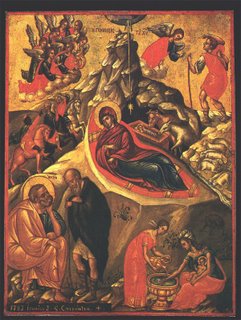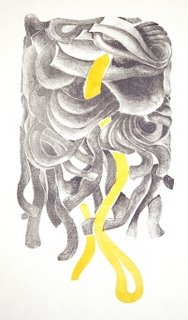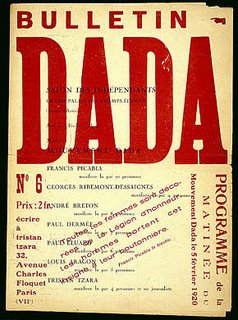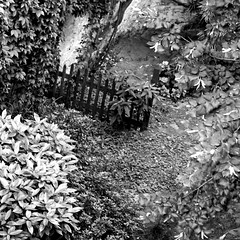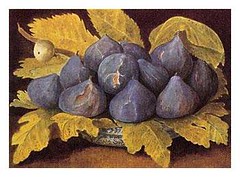Dear Doctor, I have read your play,
Which is a good one in its way,
Purges the eyes, and moves the bowels,
And drenches handkerchiefs like towels
With tears that, in a flux of grief,
Afford hysterical relief
To shatter'd nerves and quicken'd pulses,
Which your catastrophe convulses.
I like your moral and machinery;
Your plot, too, has such scope for scenery!
Your dialogue is apt and smart;
The play's concoction full of art;
Your hero raves, your heroine cries,
All stab, and everybody dies;
In short, your tragedy would be
The very thing to hear and see;
And for a piece of publication,
If I decline on this occasion,
It is not that I am not sensible
To merits in themselves ostensible,
But--and I grieve to speak it--plays
Are drugs--mere drugs, Sir, nowadays.
I had a heavy loss by Manuel --
Too lucky if it prove not annual--
And Sotheby, with his damn'd Orestes
(Which, by the way, the old bore's best is),
Has lain so very long on hand
That I despair of all demand;
I've advertis'd--but see my books,
Or only watch my shopman's looks;
Still Ivan, Ina and such lumber
My back-shop glut, my shelves encumber.
There's Byron too, who once did better,
Has sent me--folded in a letter--
A sort of--it's no more a drama
Than Darnley, Ivan or Kehama:
So alter'd since last year his pen is,
I think he's lost his wits at Venice,
Or drain'd his brains away as stallion
To some dark-eyed and warm Italian;
In short, Sir, what with one and t'other,
I dare not venture on another.
I write in haste; excuse each blunder;
The coaches through the street so thunder!
My room's so full; we've Gifford here
Reading MSS with Hookham Frere,
Pronouncing on the nouns and particles
Of some of our forthcoming articles,
The Quarterly--ah, Sir, if you
Had but the genius to review!
A smart critique upon St. Helena,
Or if you only would but tell in a
Short compass what--but, to resume;
As I was saying, Sir, the room--
The room's so full of wits and bards,
Crabbes, Campbells, Crokers, Freres and Wards,
And others, neither bards nor wits--
My humble tenement admits
All persons in the dress of Gent.,
From Mr. Hammond to Dog Dent.
A party dines with me today,
All clever men who make their way:
Crabbe, Malcolm, Hamilton and Chantrey
Are all partakers of my pantry.
They're at this moment in discussion
On poor De Staël's late dissolution.
Her book, they say, was in advance--
Pray Heaven she tell the truth of France!
'Tis said she certainly was married
To Rocca, and had twice miscarried,
No--not miscarried, I opine--
But brought to bed at forty nine.
Some say she died a Papist; some
Are of opinion that's a hum;
I don't know that--the fellow, Schlegel,
Was very likely to inveigle
A dying person in compunction
To try the extremity of unction.
But peace be with her! for a woman
Her talents surely were uncommon.
Her publisher (and public too)
The hour of her demise may rue,
For never more within his shop he--
Pray--was she not interr'd at Coppet?
Thus run our time and tongues away;
But, to return, Sir, to your play;
Sorry, Sir, but I cannot deal,
Unless 'twere acted by O'Neill.
My hands are full--my head so busy,
I'm almost dead--and always dizzy;
And so, with endless truth and hurry,
Dear Doctor, I am yours,
JOHN MURRAY

George Gordon Lord Byron (1788-1824)
Όταν ο εκδότης του Byron, John Murray, του ζήτησε να τον βοηθήσει για μια ευγενή άρνηση σε μια τραγωδία που του υπέβαλλε ο γιατρός J. W. Polidori, παλιός γνώριμος του Byron, εκείνος αντέδρασε γράφοντας τους παραπάνω στίχους σε μια επιστολή με ημερομηνία 27 Αυγούστου 1817, η οποία πρωτοείδε το φως της δημοσιότητας από τον Moore στην έκδοση Letters and Journals of Lord Byron (1830).
Το 1816, ο Polidori (1795-1821) συνόδευσε τον Byron στην Ελβετία και αργότερα τον ξανασυνάντησε στην Ιταλία. Η ματαιοδοξία του ήταν πηγή διασκέδασης αλλά και αρκετής ενόχλησης για τον ποιητή. Αργότερα, το 1819, ο Polidori διαφήμισε του μυθιστόρημά του The Vampyre, σαν έργο του Byron.

